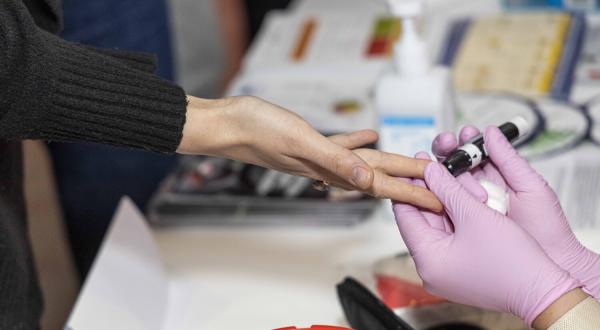RSU Welcomes Participants to the Most Comprehensive Conference on COVID-19 in the Baltics
On 28–29 April, Rīga Stradiņš University (RSU) will welcome around 1,600 researchers, practitioners, students, representatives of governmental and non-governmental organisations, as well as industry representatives to its international Covid-19 conference: Impact, Innovations and Planning. The conference will be held both online and on site. The participants represent the fields of medicine, public health, communication, social anthropology, psychology, politics, law and other fields.
This will be the largest event of its kind in the Baltics and will be dedicated to the lessons learned from the pandemic and the potential future scenarios of COVID-19. Both days will be freely accessible for current and future professionals from the above-mentioned fields, as well as for the general public, who might be particularly drawn to the lively discussions planned on Friday, 29 April.
The conference will be opened on Thursday, 28 April, at 10.00 by RSU Rector, Professor Aigars Pētersons, the Minister for Health, Daniels Pavļuts, Head of Country Office Latvia at World Health Organization, Uldis Mitenbergs, and RSU’s Vice-Rector for Science, Agrita Kiopa. The conference’s keynote speeches will be given by epidemiologist Vivian Bremer (Robert Koch Institute, Germany) and Prof. Wolfgang Gaissmaier (University of Konstanz, Germany) who will set the tone by explaining what COVID-19 has taught us so far from and examining the psychology of collective behaviour during the pandemic. The events of the day will continue in two halls and will include plenary sessions, poster presentations, as well as panel discussions by both Latvian and international experts.
On Friday, 29 April, starting from 10.00, there will be four plenary sessions on various interdisciplinary topics covered by medical practitioners, medical historians, public health specialists, social psychology and cognitive science experts, political scientists, social anthropologists, communications and law specialists, and others. The issues on agenda range from the effects that COVID-19 has on olfactory and space perception, COVID-19 mortality, a historic insight into how pandemics end, society’s and volunteer involvement in fighting the global crisis, the pandemic and communication problems, societal fatigue, risk communication, the pandemic’s impact on healthcare systems, future scenarios, and much more.
The scientific committee represents various fields, highlighting the interdisciplinary nature of the conference: infectology, paediatrics, internal diseases, family medicine, public health, communication science, and social anthropology. The members of the committee include Prof. Guntis Bahs, Assoc. Prof. Anda Ķīvīte-Urtāne, Prof. Ilze Konrāde, Assoc. Prof. Jana Pavāre, lecturer Kārlis Rācenis, Prof. Anda Rožukalne, Assoc. Prof. Klāvs Sedlenieks, Prof. Ludmila Vīksna, and Assoc. Prof. Dace Zavadska.
The conference’s partners include a number of scientific institutes, clinics, laboratories, and companies: Pauls Stradiņš Clinical University Hospital, Riga East Clinical University Hospital, the Children’s Clinical University Hospital, the Family Vaccination Centre, the Latvian Biomedical Research and Study Centre, DF LAB Medical Technology Platform of the Faculty of Computing of the University of Latvia, the American Chamber of Commerce in Latvia, the start-up Longenesis, and others.
The official language of the conference is Latvian, but simultaneous interpretation into English and Latvian will be provided when necessary. Participation in the conference is free of charge. Attending the conference will be certified with 8 CME credits. The event will be streamed live on RSU Research Week’s Facebook page and on RSU’s website, and the discussions on 29 April from 10.00 till 13.00 will also be available on delfi.lv live.
More information about the speakers, the conference programme, and registration




